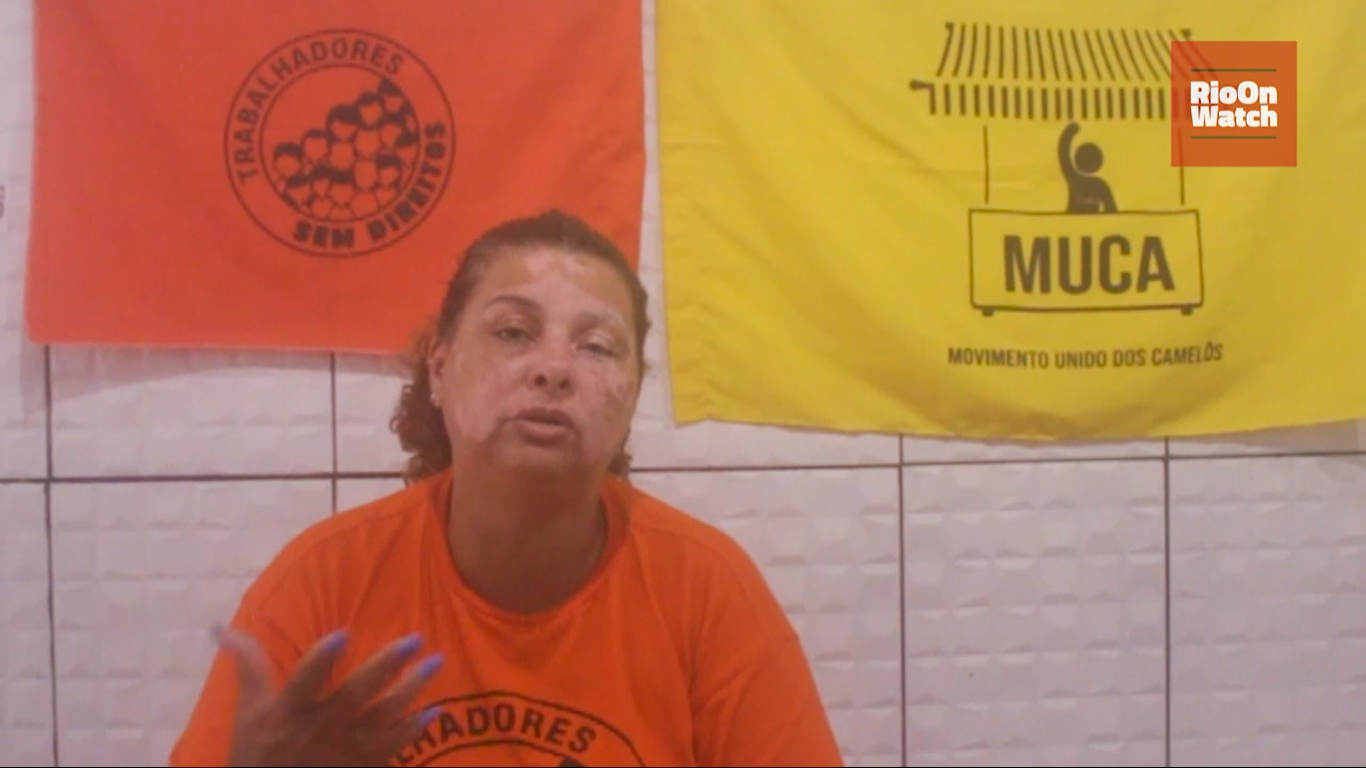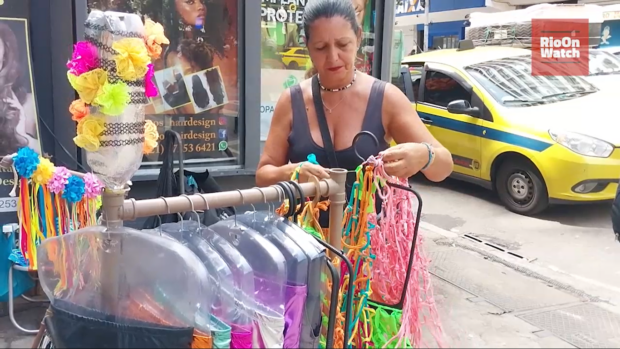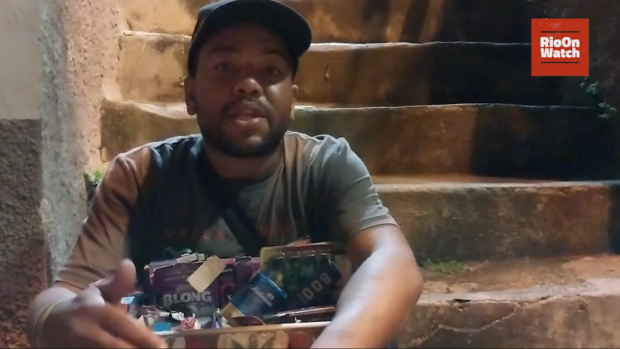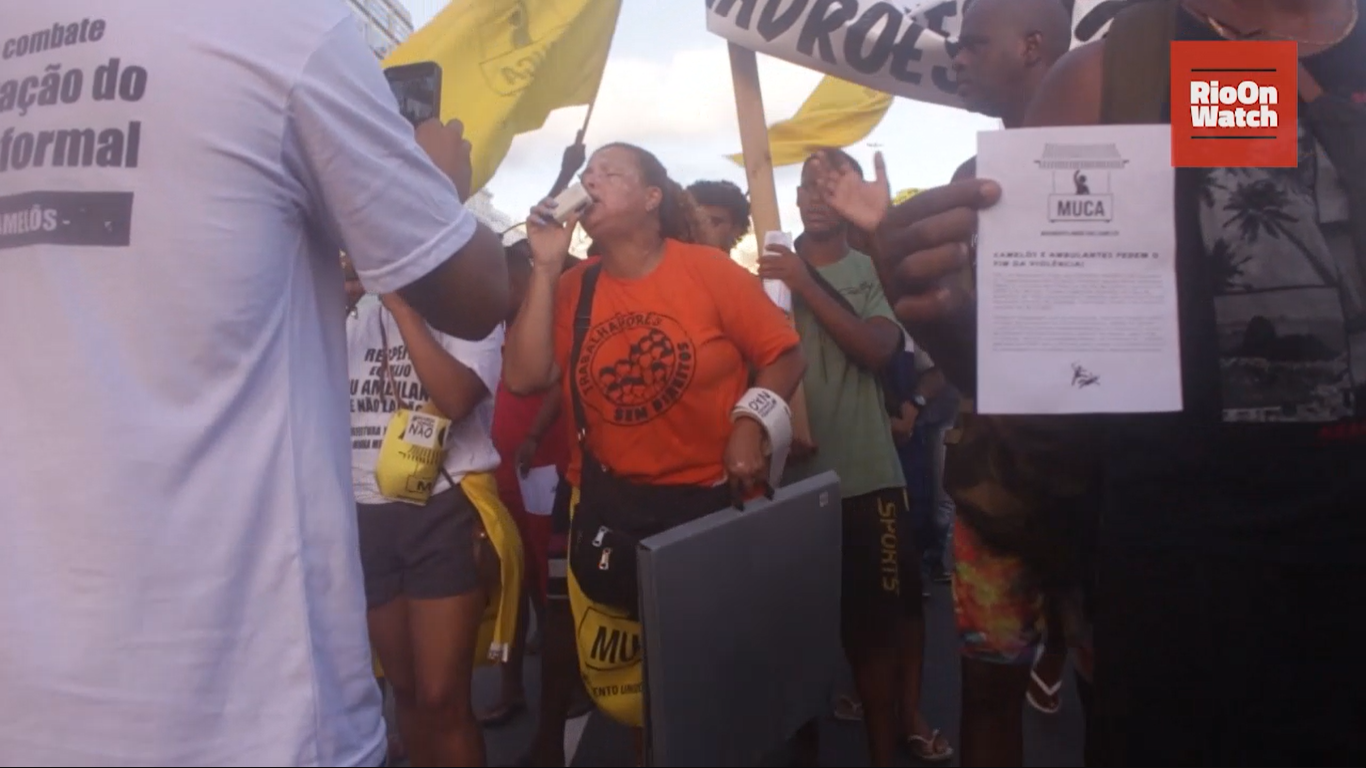This video-report shares accounts by three street vendors and shows the lived reality of informal workers on the streets of Rio de Janeiro.
The video features Maria de Lourdes do Carmo, 48, known as Maria dos Camelôs (Maria of the Street Vendors), a class leader who has worked on the streets since 1996. For 20 years she has been coordinator of the United Street Vendors’ Movement (MUCA), founded in 2003 in a moment of indignation after being assaulted by Municipal Guards (GM) in downtown Rio de Janeiro. Maria de Lourdes do Carmo was beaten by the guards 15 days after giving birth to her son.


The mini-documentary also features two other street vendors who shared their experiences in the daily fight to earn a living on the streets of Rio de Janeiro. Cristina de Oliveira, resident of the Tabajaras favela in Copacabana in Rio de Janeiro’s South Zone, has been a street vendor for over a decade and is a mother who supports her children through informal work. Initially she had a snack cart, but pressure from city inspectors, repeated confiscation of her work materials, and many losses led her to switch her merchandise and begin selling her own handicrafts.
“I went into handicrafts because it’s easier for me to run. They used to respect handicrafts, but they don’t even respect that anymore… I have to grab my products to run from them, because if they take them, they break it, even though I have a receipt for everything.” — Cristina de Oliveira
She states that she has been waiting for over a decade, without success, for permission from the city government to legally work as a street vendor. She says she has filed many requests for permission to work as a street vendor, both for food and handicrafts, since in 2009.
“We suffered a lot of aggression from the [Municipal] Guard. Inspectors come without their uniforms and treat us rudely. All we want is to be legal… Along with MUCA we want to negotiate with the City, start a dialogue… No one wants to stay informal! We just want the right to work, the right to support our children!” — Cristina de Oliveira

Lucas Yan Antunes Santos, resident of Vila Aliança in the Bangu neighborhood in the West Zone, has faced similar situations. Santos owns a mobile stand that sells candy, gum, and cigarettes which he calls “my enterprise, my little company, my great business.” Santos’ mobile candy store brings comfort to his clients and supports his children. However, he states that he feels afraid working as a street vendor on the streets of Rio, having been violently assaulted by Municipal Guard agents in Copacabana. He is afraid of being attacked again and of not returning home to his children.
“The street is a huge platform for those who want to work… There aren’t any jobs, but there is work… The problem is that when I go to work, I have a barrier in the street… the Municipal Guard… that comes to take my merchandise… Here I am vulnerable, the guys [from the Municipal Guard that attacked me] were replaced. I don’t even know who the guys were, tomorrow or the day after something could happen to me. To this day I’m trying to find out who killed Marielle and I don’t know! Let alone me, a nobody! Tomorrow or the day after [you will hear] ‘so-and-so’s gone missing’!” — Lucas Yan Antunes Santos
The right to work and to the city are central issues for these workers. The search for a job with safety, guarantees, and respect clashes with public policies that exclude street vendors from the Central and South Zones of the city.
Unemployment in Brazil has been declining, in part because of the increase in informal work that for many people is the only source of income for their families. In Rio de Janeiro, as well as difficulties common to informal workers, street vendors still face strong repression and aggression from the Municipal Guard and from the Municipal Secretariat for Public Order (SEOP). The lack of dialogue with these workers is typical of Mayor Eduardo Paes’ administration. But the street vendors continue to fight.

The United Street Vendors’ Movement is a reference in the fight, existing to defend street vendors in the face of marginalization and absence of dialogue from Rio de Janeiro City Hall. MUCA has organized protests in the streets, demanding formalization and an end to violence against vendors. So, for anyone who buys candy on a bus, train, ferry, or subway, or barbequed cheese or iced tea at the beach, or a beer at a street party, it’s always good to remember that: “the street vendor is my friend, mess with him you mess with me!”
Watch the Video-Report Here.

About the author: Vinícius Ribeiro was born and raised in the West Zone of Rio, and currently lives in Mangueira. Journalist, cinematographer and photographer, he is a member of the Fotoguerrilha Collective. He is director and screenwriter of short films Sobreviver, Dame Candole, Sob o Mesmo Teto and Entregadores, and is currently involved with a project about the Uberization and precarization of labor.
